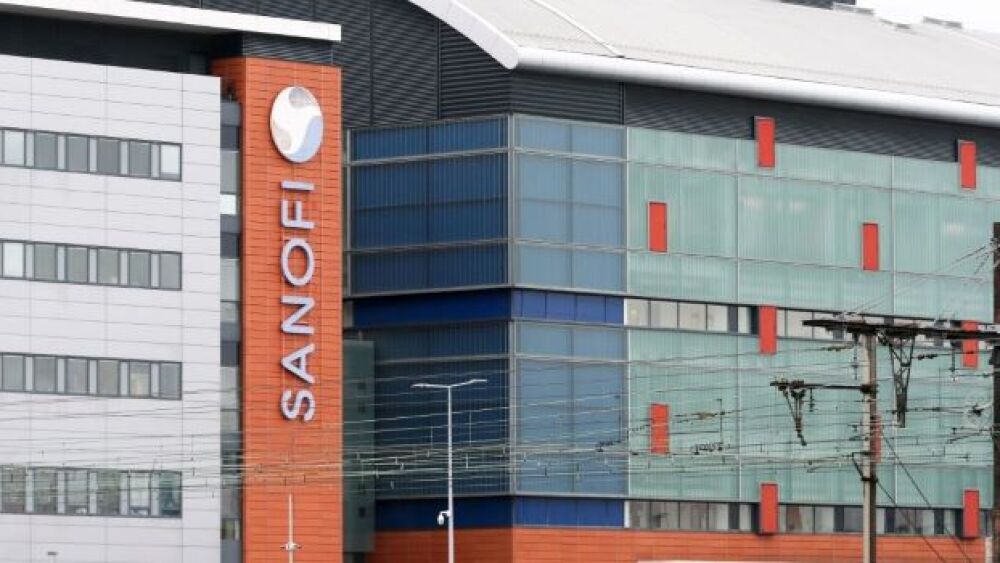Sanofi secured a €300 million investment to advance the development of a subcutaneous formulation of Sarclisa, an anti-CD38 antibody for patients with multiple myeloma.
Michel Stoupak/NurPhoto via Getty Images
One day after a drug considered a cornerstone for Sanofi‘s oncology franchise took a painful hit, the company secured a €300 million investment (about $329 million) to advance the development of a subcutaneous formulation of Sarclisa, an anti-CD38 antibody for patients with multiple myeloma.
Sarclisa is a monoclonal antibody that binds to the CD38 receptor on multiple myeloma cells. In 2020 the FDA approved Sarclisa in combination with carfilzomib and dexamethasone (Kd) for the treatment of adult patients with relapsed refractory multiple myeloma (RRMM) who have received one to three prior lines of therapy. That marked the second approval for Sarclisa. Prior to that, the FDA greenlit the drug for the treatment of adults with RRMM who received at least two prior therapies, including lenalidomide and a proteasome inhibitor.
The €300 million infusions was provided by Blackstone Life Sciences, which, in 2020, closed its Blackstone Life Sciences V fund at its hard cap of $4.6 billion. Blackstone will be eligible to receive royalties on future subcutaneous sales should the studies lead to commercialization through the financing. The pivotal study for the subcutaneous formulation of Sarclisa is expected to begin in the second half of this year. Full terms of the collaboration were not disclosed.
“We are excited to collaborate with Sanofi’s experienced development team to advance a subcutaneous dosage form for Sarclisa for patients. Our investment demonstrates Blackstone’s commitment and ability to provide innovative sources of financing to the world’s leading pharmaceutical companies as we offer capital at scale and complementary expertise to help advance important medicines in critical therapeutic areas,” Nicholas Galakatos, global head of Blackstone Life Sciences said in a statement.
Blackstone has a significant track record supporting companies and their pipeline development programs as a private investment firm. Earlier this month, Blackstone led a $200 million financing round for California-based DNAnexus, Inc. to advance the global adoption of its cloud-based biomedical data analysis software.
Last year, Blackstone provided Autolus Therapeutics with $250 million in funding to support that company’s development of obecabtagene autoleucel (obe-cel), a CD19 CAR T cell investigational therapy product candidate. Also, Blackstone-led SFJ Pharmaceuticals, a drug development company supported by Abbingworth, financed a cancer treatment being developed by Nektar Therapeutics. The $150 million financing aimed to support the development of Bempegaldesleukin (BEMPEG), an investigational CD122-preferential IL-2–pathway agonist.
John Reed, Sanofi’s global head of research and development, noted that the collaboration with Blackstone is expected to accelerate the company’s ability to provide the subcutaneous formulation of Sarclisa to patients in a manner they believe will be more innovative and more convenient.
“We are committed to building an industry-leading, sustainable pipeline with a steady stream of new therapies that have the potential to transform the practice of medicine,” Reed said in a brief statement.
While Blackstone has provided some financing to support the studies, Sanofi partnered with Enable Injections, a drug delivery technology company for subcutaneous formulation delivery. Sanofi said the goal of this formulation is to provide a “unique patient-centric treatment experience.”





